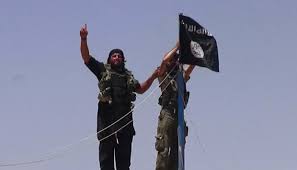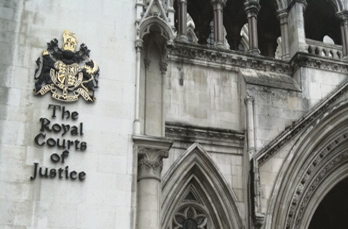On 24 November, Atlantic Council of Canada (ACC) roundtable occurred in Montreal, providing an international perspective on the rise of the Islamic State in Iraq and Syria (ISIS). Participants in the discussion included Egyptian Ambassador Amin Meleika and Canadian Colonel (Retd.) George Petrolekas. Points discussed in the event ranged from popular perceptions of ISIS within Egyptian society to analytical aspects of the organization and military capabilities.
Ambassador Meleika provided an overview of the situation within Egypt; and as discussed and later described in his 27 November article in The Globe and Mail, Colonel Petrolekas called ISIS a butting proto state that must be defeated and tackled as such, rather than a terrorist organization.

Canada’s current role in the fight against ISIS is not so complex as the Colonel explains. “Canada is playing a part in this coalition, but as a consumer of other nations’ strategy, rather than a producer of strategy, Canada’s choices are limited to what, where, when and how it will participate.”
As for Egypt, it is currently facing a serious challenge in regards to stability and security. The country feels flanked by ISIS proxies on both eastern and western fronts.
In the East, Sinai based terrorists have killed over 500 Egyptian security personnel over the past three years. Groups such as Ansar Beit al-Maqdis (ABM) in a very recent announcement have sworn allegiance to ISIS. ABM was identified by the US government as a foreign terrorist organization and global terrorist entity back in March 2014, before it carried out successful attacks such as the January 2014 downing of a military helicopter using missile technology. In late October 2014, the group participated in a well coordinated insurgent operation that left 30 Egyptian military personnel killed.
What is increasingly concerning is the development of a working relationship between ABM and ISIS. Both Egyptians and Gazans have travelled to Iraq and Syria and return to take part in the Sinai insurgency. Egypt’s main concern is the ability of terrorists to rattle the system with more force and violence then ever before. The real danger for the Egyptian government is ISIS’ ability to attract militants from abroad who are prepared to make their way back into their home countries and conduct terrorist attacks.
Facing the situation, the Egyptian government has had little choice but to declare a state of emergency in specific regions, apply a curfew in the Sinai, and proceed with the creation of a buffer zone destroying numerous homes.
[quote align=”center” color=”#999999″]As of today, the goal of degrading and destroying ISIS is far from advanced.[/quote]
On the western front is Libya and a shared 1200 Km border. Due to the instability inside Libya, it has been very difficult for the Egyptian security forces to secure the western border. Many weapons in the Sinai have been smuggled into Egypt from Libya. The Ansar al-Sharia group, which is responsible for the 2012 killing of US Ambassador J. Christopher Stevens in Benghazi, swore allegiance to ISIS in October 2014.
Egypt needs all of its military capabilities, weaponry and airforce to secure both western and eastern fronts.
Many trace the rise of the Islamic State to the 2003 American invasion of Iraq, however the discussion suggested that it is slightly more complex. That position presupposes that you would accept everything Saddam Hussein did in the search for stability.
Collections of events have triggered the rise of ISIS. The historiography ultimately ceases to matter in the current situation; as all the discussion in Washington and elsewhere focusing on Assad or Iraqi governance equals to saying in 1936 “If you solve Versailles, you solve the emergence of the Nazis.”
By 2010, the US had invested 24 Billion in readying the Iraqi army; however Obama was elected on a promise to pull American troops out. Pulling out re-instituted a rift in Iraqi society by ending governing arrangements and ultimately with one thing leading to another the Iraqi army was destroyed and Iraqi Prime Minister Al-Maliki applied less stable governing arrangements.
ISIS, by contrast, is highly organized. It governs successfully, it provides social services and welfare, according to its codified, legal and rational process that includes capital punishment for non-supporters.
In conclusion, what makes ISIS so dangerous to the international community is the fact that it acts like a rational and organized state. A failure to intervene properly will not spare Western democracies from the next generation of hate, but will rather enable an organized state to continue developing a codified system of education encouraging what we identify as moral atrocities.
As of today, the goal of degrading and destroying ISIS is far from advanced.





